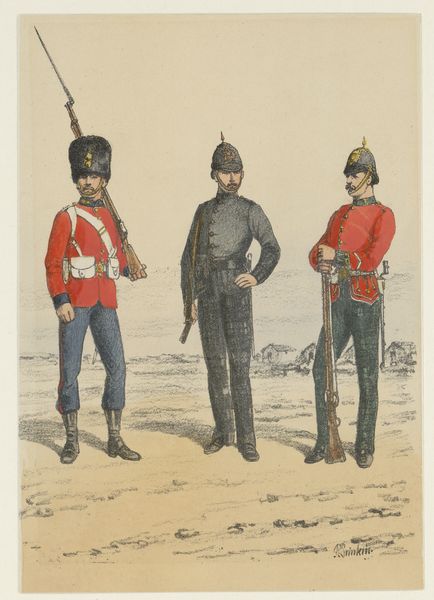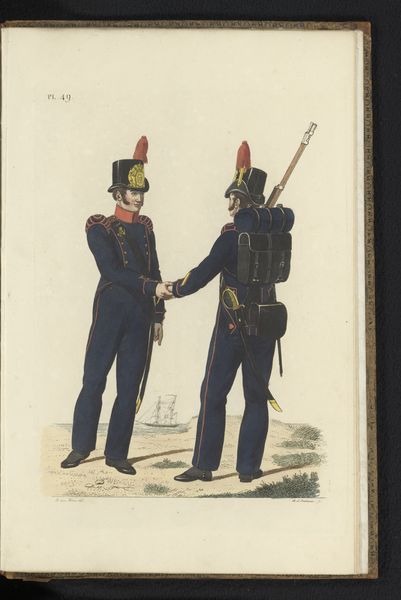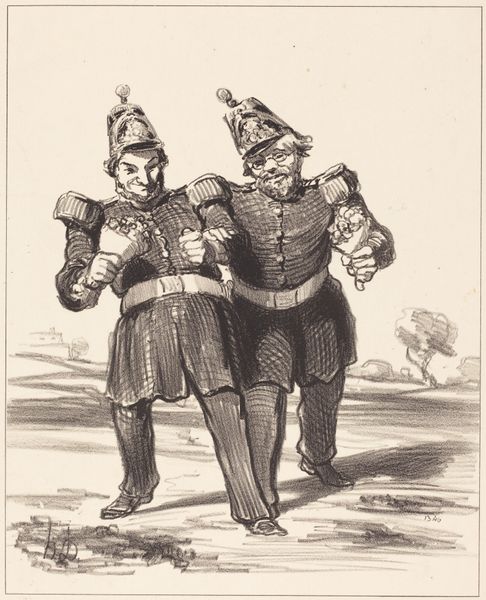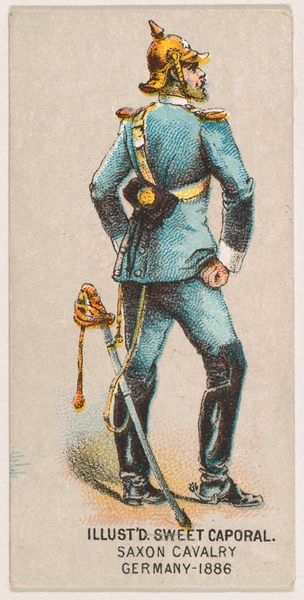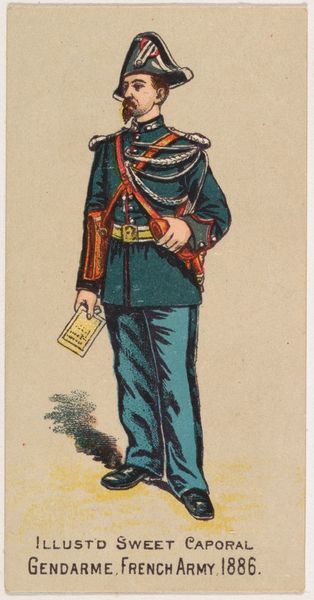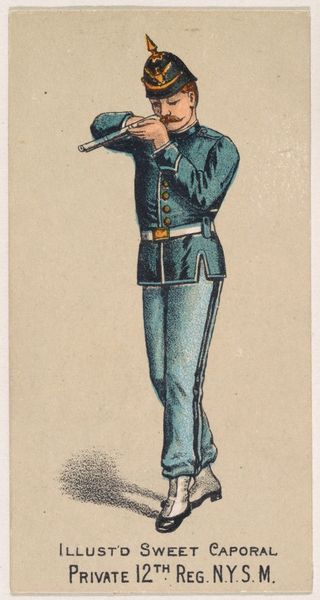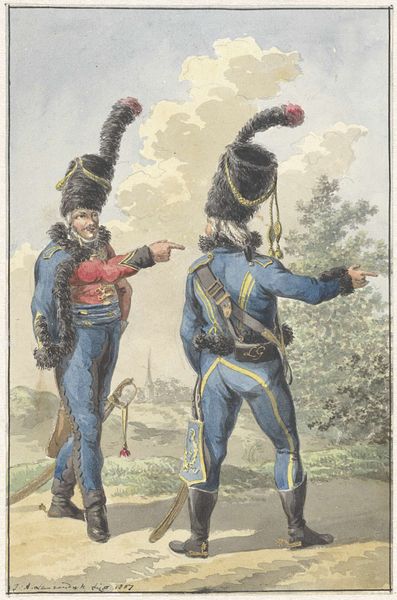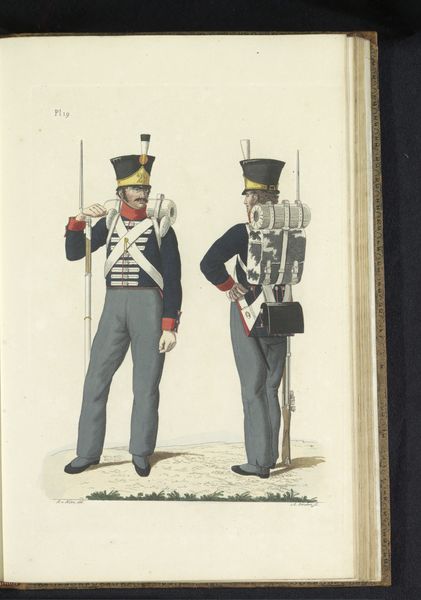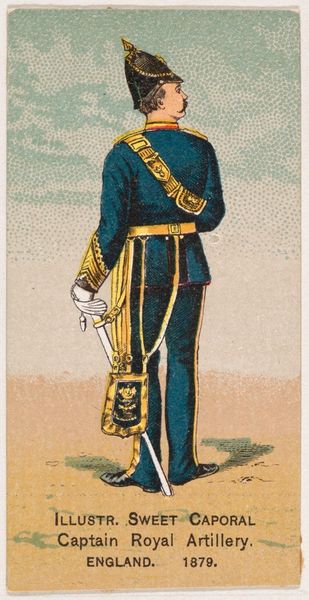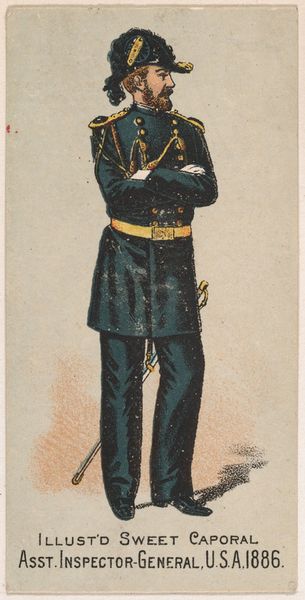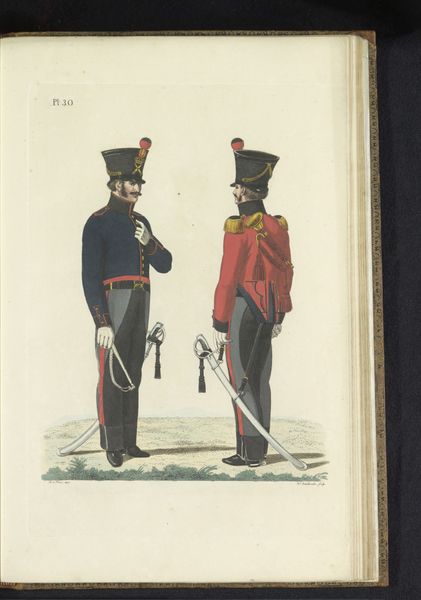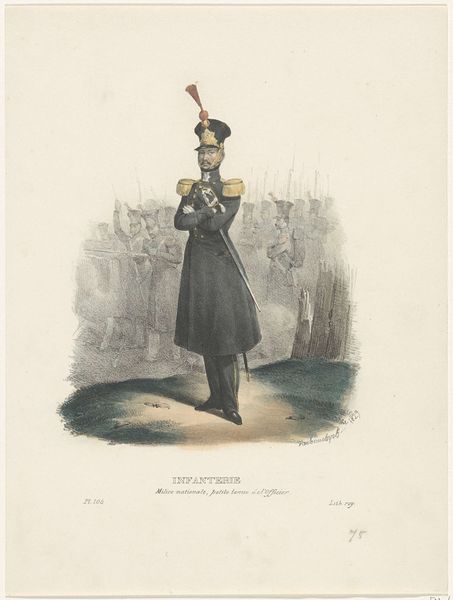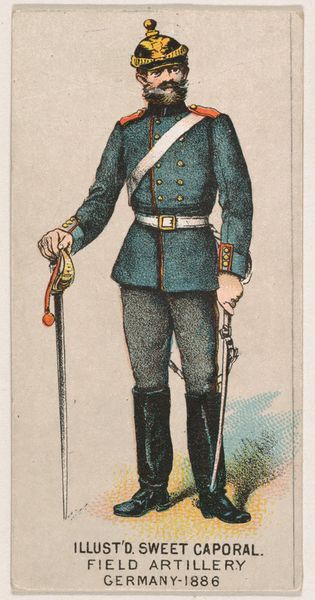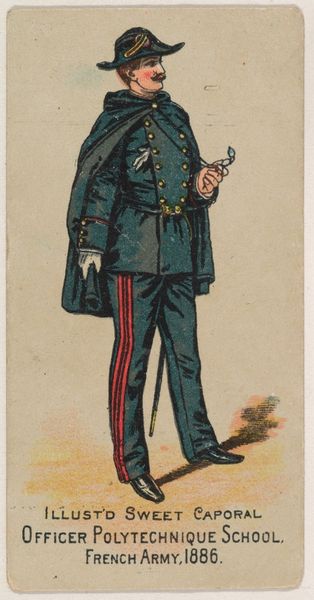
drawing, coloured-pencil
#
portrait
#
drawing
#
coloured-pencil
#
pencil sketch
#
coloured pencil
#
genre-painting
#
academic-art
Dimensions: height 185 mm, width 130 mm
Copyright: Rijks Museum: Open Domain
Editor: This is "Drie Britse militairen," or "Three British Soldiers," a coloured pencil drawing by Richard Simkin, probably from the late 19th century. They look so formal, yet the soldier on the left seems to be running. It's an interesting contrast. What stands out to you about this piece? Curator: The image immediately evokes the powerful symbolism of the British Empire. The formal portraiture locks in their perceived sense of order and control, but consider how the artist chooses to depict movement. One soldier advances, perhaps charging forward, the sound of the bugle implies an upcoming event. Why does Simkin portray the three figures against the backdrop of many faceless figures marching steadily into an unknown background? Editor: So, these three are distinct, and those other figures in the back are more like part of a mass? Curator: Precisely. Are they heroes? Are they victims? Look closely at their uniforms, the arrangement of buttons, the colour of the trim, the gleam of their metal. These uniforms signal hierarchy and function. They're ciphers of Imperial power, perhaps. The uniforms give meaning to who these men are in service. What would happen if we stripped away their uniforms? What might their stories reveal then? Editor: I never thought of uniforms as symbols that way, as almost like… masks of identity. That’s so interesting. Curator: Think about it: in many cultures, specific clothes are required or carry special symbolism. A crown indicates a king or queen. The arrangement, cut and design is meaningful, beyond just decoration. This colored pencil drawing, seemingly simple, opens up layers of consideration regarding individual identity and state power. It is more than just a portrait, isn’t it? Editor: Definitely. Now I see that the individual is presented only through the symbolism of their clothing and their role in this... procession, maybe? I will look at uniforms differently. Thanks!
Comments
No comments
Be the first to comment and join the conversation on the ultimate creative platform.
